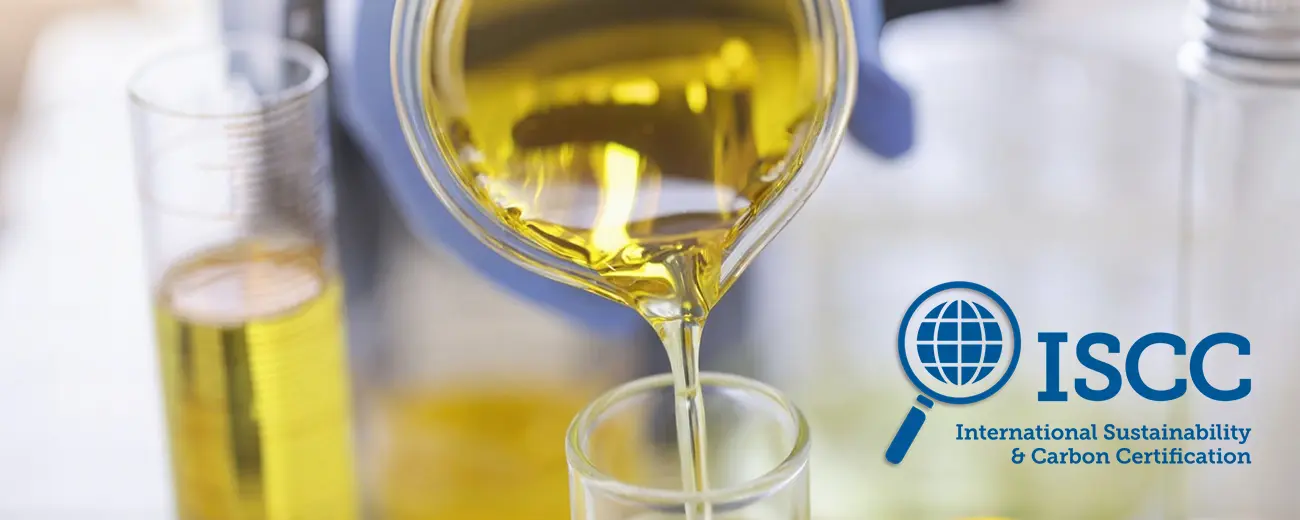With the global push toward sustainability and carbon neutrality, the energy and recycling industries are increasingly turning to innovative technologies to address the environmental crisis caused by plastic waste. Among these innovations, plastic pyrolysis oil, produced through the thermal decomposition of waste plastics, stands out as a promising alternative fuel. However, as with any fuel source entering the broader energy market, credibility and traceability are essential. This is where ISCC (International Sustainability and Carbon Certification) plays a crucial role.
ISCC is a globally recognized certification system that ensures sustainability, traceability, and compliance with environmental and social standards across various sectors. For companies investing in pyrolysis machinery and striving to produce marketable and sustainable plastic pyrolysis oil, ISCC certification has become a key factor for international recognition and commercial viability.
Why ISCC Certification Matters
Plastic pyrolysis oil is derived from the thermal cracking of plastic waste in an oxygen-free environment. This process, typically carried out using a plastic pyrolysis plant, transforms plastics like polyethylene and polypropylene into a liquid oil that can be refined further into fuels or chemical feedstocks. While the technology itself is a major leap in waste management, the commercial use of the resulting oil faces challenges related to regulatory standards and environmental safety.
ISCC certification addresses these challenges by providing a framework that verifies the sustainable sourcing of feedstocks, reduces greenhouse gas emissions, and ensures compliance with human rights and labor laws. For plastic pyrolysis oil producers, having ISCC certification helps gain access to European and other global markets that require such verifications. This is particularly important when the oil is intended for use in transportation fuels or as a chemical raw material in sectors under strict environmental regulations.

Building Trust and Market Access
One of the most significant barriers for new fuels like plastic pyrolysis oil is market skepticism. Buyers, especially in regulated industries such as petrochemicals and energy, demand transparency and accountability. ISCC certification provides a verifiable chain of custody from feedstock to final product. This certification assures buyers that the oil was produced from verified waste streams using sustainable methods.
For companies like Beston Group, which offers innovative waste-to-energy solutions, including high-efficiency continuous pyrolysis plants, ISCC certification significantly enhances the appeal of their products. Clients not only receive a technologically advanced system but also one that aligns with international sustainability goals.
Compliance with Global Regulations
Governments and international bodies are increasingly tightening regulations related to waste management and renewable fuels. In the EU, for example, the Renewable Energy Directive (RED II) outlines specific criteria for sustainable biofuels and waste-derived fuels. ISCC certification is one of the few recognized systems that comply with RED II standards. Therefore, for plastic pyrolysis oil to be classified as a sustainable fuel under EU law, ISCC certification is virtually a necessity.
This compliance has a dual benefit. On one hand, it opens the door for subsidies, incentives, and tax benefits associated with renewable energy. On the other, it shields businesses from the legal and reputational risks that could arise from using uncertified or environmentally damaging feedstocks.
Driving Investment and Innovation
Another often overlooked benefit of ISCC certification is its impact on investment. Investors and stakeholders are increasingly prioritizing ESG (Environmental, Social, Governance) compliance in their portfolios. A pyrolysis oil operation that is ISCC-certified signals a commitment to sustainability, increasing its attractiveness to green investors and funding bodies.
As a result, ISCC-certified projects tend to secure better financing terms and are often prioritized in public-private partnership programs. This influx of capital supports further innovation in pyrolysis technologies, such as automation, efficiency optimization, and integration with carbon capture systems.
The Future Outlook
As the world intensifies efforts to reduce plastic pollution and decarbonize energy systems, the demand for sustainable alternatives like plastic pyrolysis oil is expected to grow. ISCC certification will likely become the gold standard for market entry, particularly in regions with strict environmental policies.
Manufacturers that incorporate sustainability into their operations from the outset will be better positioned to thrive in this evolving landscape. This includes investing in advanced systems such as a continuous pyrolysis plant, which offers superior efficiency and traceability compared to batch systems.
Moreover, as public awareness of plastic pollution grows, brands will face mounting pressure to prove the environmental integrity of their sourcing and production methods. ISCC certification provides a robust framework to meet these expectations, fostering trust among consumers, regulators, and industry partners alike.
Conclusion
ISCC certification is more than a regulatory checkbox; it is a powerful tool that ensures sustainability, builds market trust, and unlocks access to international fuel markets. For businesses involved in plastic pyrolysis, the path to certification can be complex, but the rewards far outweigh the effort. By partnering with established technology providers like Beston Group and investing in state-of-the-art pyrolysis machinery, companies can position themselves as leaders in the green energy transition.
